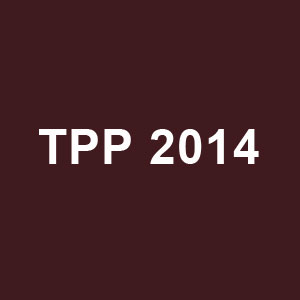“Performance, Dada and Gaga, in the Posthuman World”
Are we human or are we dancers?
“Human” Brandon Flowers, The Killers
In Gaga Feminism: Sex, Gender, and the End of Normal, J. Jack Halberstam charges us to start a revolution, create a Gagapocalypse, breaking old barriers and limits. Judith Butler—Precarious Life: The Powers of Mourning and Violence—charges us to take to the streets in a public forum to protest and challenge limits set by the systems that control society. While Andrei Codrescu looks at Dada, as the manipulation of art for anarchy; his The Posthuman Guide to Dada: Tzara & Lenin Play Chess exposes the modernist world that hoped for a Marxist ideal but deteriorated in corrupt centers and massive oppression that arrive to the twenty-first century world of the avatar posthuman and the vulnerable ‘meat’ human.
Dadaesque-postmodern performances—by musician Lady Gaga, performance artist Marina Abramovic, and poet and philosopher Andrei Codrescu—antagonize the political activism necessary to support rights and freedoms for the vulnerable human. These activist enticing performances meet Halberstam’s charge for a Gagaesque performance exposing betrayal by humans, and Butler’s identification of a precarious position in the public forum. These theories merge in a Foucauldian solution, where performance acts as a resistance via fractures in the societal web (History of Sexuality 1, 96).
Fractures such as the vulnerable human that Abramovic exposed in her 1974 Rhythm O performance of passivity by her/the performer and sadistic abuse by the audience; the film of that performance was shown in her life’s retrospective at the MOMA in 2012. The retrospective was attended by one million visitors. The physical abuse and torture Abramovic suffered is the vulnerable status that Lady Gaga exemplified as she attend the 2010 MTV awards in a dress fashioned from raw beef, expressing her being a meal for the vultures, a society that exploits and exposes the vulnerable and does not support differences. She was protesting the “Don’t Ask Don’t Tell” controversy. In an eclectic array of approaches, all of these performances and philosophical conversations move to the ways in which art, literature, and philosophy expose and fracture society’s web and perform as activism.
Mary Kate Azcuy is an Associate Professor of English at Monmouth University, in New Jersey, where she specializes in contemporary American literature with research interests in literature by women, feminist, gender, and literary theory, and classical literature. Her current project involves poetry and performance relative to feminism. She has just completed a book on American poet Louise Glück’s collection Averno. This past year, Azcuy presented papers and gave lectures at universities in Paris, Lille, Perpignan, and Nice. Azcuy is also a published poet, who has performed readings at the O’Miami Poetry Festival and the Bowery Poetry Club in NYC.

